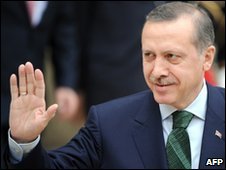I am not racist, but very frequently you hear these words in Germany, and they are often used before a tirade against foreigners. Of course, racism is a worldwide phenomenon, but it is a fact that Germans have a reputation for being an extremely racist people. Many Germans are very offended by this and claim that it is not true. Haven’t we taken in more refugees than all other European Union member states together? Don’t they owe their lives to us? Don’t we give them homes? What is racist about that? These are tirades that they argue vehemently. However, if you look at the matter more closely, you will see that those arguments are neither sufficient nor convincing.
If you look at the way refugees are treated instead at how many there are living here, you will not exactly find proof for Germany’s anti-racism. Some refugee camps are so run-down and filthy that even animals would be extremely unhappy there. Some refugees live in rooms without windows, and if they earn money, they even have to pay for such a place to live.
Moreover, even decent refugee camps are always very dangerous places, because they are popular targets for crazy neonazis who might throw bombs at them. This has happened far too often already. There is a huge amount of hatred behind all that. What is worst, and what scares me very much, is that nothing is really being done about neonazis. Even their political party called NPD (Germany’s nationalistic party, or Nationalsozialistische Partei Deutschlands) still exists, which I find unbelievable, especially considering Germanys history. To me, even the resemblance of that party’s name to Hitler’s NSDAP (Germany’s Nationalist workers party, or Nationalsozialistische Deutsche Arbeiterpartei), which existed during the Third Reich, is very offensive. However, it is not only neonazis that foster so much hate against foreigners. Near my home town, for example, an African was killed by policemen some years ago.
Germans always claim to be tolerant and open-minded towards other cultures. This might be true for certain cultures, namely those similar to our own, like people from Europe, North America or Australia. However, the picture is totally different with foreigners from more exotic places, especially for those with a dark skin. Among those, refugees are certainly the least popular inhabitants of Germany, but they are by no means the only kind of foreigners being ostracized. I have nothing against them, but they should keep to themselves, and so should we, many Germans argue, completely unaware of the contradiction within this statement. For reasons probably not even clear to them, many people think that spending time with blacks will ruin someone’sreputation.
Any person who believes that the German society is not racist should look at the way many parents react when their daughter or son has a black partner. Some will even refuse to regard their child as a member of their family any longer. Moreover, Germans with black partners walking along the street will merely be stared at if they are lucky, or if not, they will be called abusive names. Watching such scenarios will surely make anyone at least doubt the fact that Germans are friendly towards foreigners.
As usual in such matters, one should be careful not to generalise. There are German people who are extremely open-minded. An old lady once invited me and an African friend to sit with her in the tram and spoke to us in a very friendly way throughout our journey. However, I have found such people and situations to be the exception. Certainly there is some degree of racism in any country, but I still have to say that Germany gives a particularly bad picture, especially compared to other European countries. During my holidays in Sweden, Ireland or England I have walked along the street with African, Japanese and Indian people, and I have never been stared at as I have in Germany.
To me, it is apparent that there is far too much racism in my country and that it must be fought with much more determination than politicians are showing at this stage.
The Cheers
A comment from a reader
Andreas Muller says on 2010-02-18 22:07:24 about Racism in Germany
Of course we are racist as German and we are very proud on that. But there are many racists in USA too. Racism in USA is other matter. Now the topic is about this fact, that Germans are centre of extreme racism and it’s true. Our racism is hidden and modernized into sadistically making pain to foreigners. We ruin the life of foreigners and we conspire against them. For us the foreigners are like home animal or prisoners. We as Germans want to make a new spread fascism around the world by our lobbies in other countries.







![Turkish PM Erdogan says Israel is 'threat to peace' 7 Israeli Deputy Foreign Minister Danny Ayalon meeting Turkish Ambassador Ahmet Oguz Celikkol, captioned "the height of humiliation" in Israeli newspaper Israel Hayom [Image: Lior Mizrahi/Israel Hayom]](http://newsimg.bbc.co.uk/media/images/47602000/jpg/_47602916_ayalon226.jpg)
